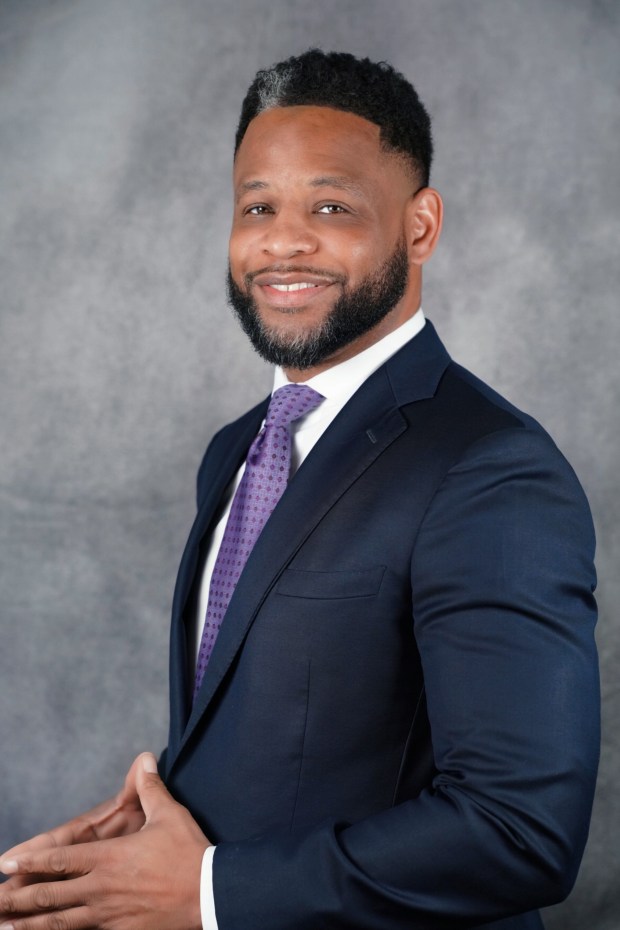Minority and women business owners and organizations say the Trump administration’s focus on eliminating diversity, equity and inclusion programs will damage the economy, deliver a blow to minority communities and reveal a major lack of understanding about the major benefits of the programs.
Attacks on DEI programs will make it more difficult to overcome barriers that these businesses continue to face in accessing government and private sector contracts but won’t stop them from fighting for their fair share of contracts, they say.
“Our members are looking for opportunities to compete, and they are obviously concerned about the rolling back of these programs and the opportunities that come with them,” said Rod Young, president of Calumet Park-based Black Contractors, Owners and Executives, which has members across the Chicago area.
Minority-owned contractors and businesses are contributing positively to the economy by creating jobs and hiring opportunities within and outside their communities, said entrepreneur Shon Harris, founder of the organization and of two businesses, LiveWire Construction and BlackRock Construction. Harris has successfully landed government contracts and notes he employs roughly 150 people.
“We have given opportunities to folks in the field working as tradesmen,” he said, adding the company has provided them technical training on such things as estimating and project management.
“Some have gone on to start their own businesses,” he said. “At least seven or eight businesses have come out of LiveWire.”
He worries the attacks on DEI programs will have negative repercussions including increasing unemployment.
“I think it will increase the wealth gap in our communities,” he said. “You will see more disenfranchised businesses, more communities become impoverished. What will it look like in another 10 years?”
He and Young are concerned efforts to roll back programs at the federal level will spread to states, counties and local government entities and to the private sector. Harris said it’s already having an impact with large corporations such as Target stepping back, and he noted that some recent bid solicitations from the Illinois Department of Transportation did not include any diversity goals.
“It’s definitely going to impact women and minority businesses in terms of reducing access to federal contracting opportunities. They’re going to be at a disadvantage when these programs are removed,” said Donna Beasley.
She is director of the government contracting program and services at the Women’s Business Development Center, and center director of the Illinois APEX Accelerator at the center.
“I’ve met recently with clients interested in doing contracting work,” said Felicitas Cortez, director of the Illinois Small Business Development Center in Olympia Fields, which is hosted by the Women’s Business Development Center.

Even with programs in place, women and minority businesses still receive only a tiny share of government contracting dollars.
According to Fiscal Year 2024 statistics from the U.S. Small Business Administration, out of $637 billion in contracts awarded to small businesses, the amount awarded to small minority-owned businesses was a pittance including among:
- Asian American-owned businesses: 1.34%
- Black American-owned businesses: 1.54%
- Hispanic American-owned businesses: 1.87%
Women-owned small businesses received only 3.3% of all federal contract dollars going to women-owned enterprises in FY 2023, according to a report from Federal News Network, which cited data from FedMine, a government business intelligence platform.
Harris fears many Black- and brown-owned businesses may now go from low opportunities to no opportunities.
In its first days in office, the Trump administration revoked several executive orders focused on equal employment opportunities and promotion of diversity for the federal government and federal contractors.
The order requires the Office of Federal Contract Compliance Programs within the Department of Labor to immediately cease promoting “diversity” and calls for excising references to DEI from federal acquisition, contracting, grants and financial assistance procedures.
It also requires that within 120 days, the U.S. attorney general submit a report containing “recommendations for enforcing Federal civil-rights laws and taking other appropriate measures to encourage the private sector to end illegal discrimination and preferences, including DEI.”
The order also targets nonprofits.
It was issued under the heading “Illegal Discrimination and Restoring Merit-Based Opportunity.”
Meanwhile minority- and women-owned business continue to face obstacles including access to capital, exposure to information and opportunities and difficulty in getting their feet in the door, minority- and women-business advocates say.
The executive order reflects a big misperception of the intent of DEI, said Debra Jennings-Johnson, interim president and CEO with the Chicago Minority Supplier Development Council.
“It’s always been based on merit,” Jennings-Johnson stressed. “The intent was to give all companies including minorities and women exposure to information and opportunity. It gave them the chance to submit competitive bids.”
Her advice to minority- and women-owned businesses is to stay on point, continue as they’ve always done providing good services and products, building their capacity and providing competitive bids.
“Focus on that no matter what,” she said.
Despite the executive order, women- and minority-owned business will continue to persevere, entrepreneurs and advocates said.

“Women- and minority-owned businesses have long faced significant challenges, requiring a level of resilience and adaptability that is truly remarkable,” said Emilia DiMenco, president and chief executive officer of the Women’s Business Development Center.
“Despite any barriers, I am confident in the tenacity of our small business community, and I know they will continue to adapt to the evolving dynamics. We will continue to help them navigate complex systems and ensure they can take full advantage of the opportunities that are available to them,” DiMenco said.
U.S. Rep. Robin Kelly, a Democrat from Matteson, said she’s concerned that minority- and women-owned businesses will be hurt and her office is exploring holding a small business fair this spring to help respond to the needs of small business owners.
“It’s trying times,” she said. “People need to standup and speak out. They need to call their Congress people, representatives and the White House to let them know how unhappy they are,” about the order, she said.

Minority businesses have become best in class and are helping drive innovation and bring diversity of thought which are assets to the U.S. economy, but until discriminatory barriers are completely removed, the government and private sector must continue to work to be fair, Harris and Young said.
“I would like America to show we don’t need these programs, to demonstrate that by continuing to give opportunities to Black and brown businesses,” Harris said, adding if that is not the case, action will be required.
“We will wait and see what America says and does,” said Harris. “If it shows us they will not be fair, we will show up and call out America and all those businesses and entities that choose not to have inclusion and diversity in their businesses. We will let everybody know they don’t deserve our dollars.”
Francine Knowles is a freelance columnist for the Daily Southtown





